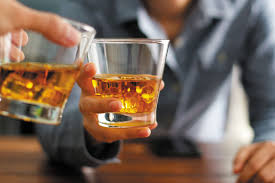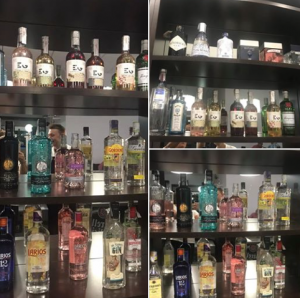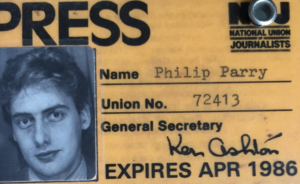- Polls apart - 4th March 2026
- Repeating on you… - 4th March 2026
- History man - 3rd March 2026

The effects of minimum alcohol pricing in Wales have been condemned by retailers, with research also showing that problem drinkers are being pushed towards strong spirits, and turning to sex work to feed their habit.
One Welsh retailer who specialises in the sale of alcohol told The Eye: “This simply isn’t working. People who want to buy a bottle of wine for the meal are being penalised, while the hardened drinkers are just turning to stronger stuff”.
Other retailers declared that they had stopped selling large bottles of cider altogether, as sales had fallen significantly after the new pricing legislation was brought in

A minimum price of 50p per unit was introduced in Wales in March 2020, and a survey of 138 people in the country who had sought help for problem drinking found that some had simply swapped to buying litres of vodka.
An official report revealed too that some problem drinkers were going without food or heating, turning to sex work, or begging, as well as stealing to pay for drink.
It said that “most marked in the changes observed was that of a switch away from the previously cheap cider products towards spirits, wine, and strong lagers, rather than any reduction in consumption”.

In the survey only a small number said the increase in the price had reduced the amount they were drinking.
The researchers stated that “contrary to the policy’s goal of reducing drinking amongst hazardous and harmful drinkers, many respondents reported no change or even an increase in their intake, as stronger drinks are often the most economical”.


Many drinkers said that the policy had “pushed dependent drinkers toward stronger alcoholic beverages, especially vodkas. Some have continued to maintain or even to increase their consumption despite the policy, which was intended to reduce consumption”.
One drinker stated: “The unit price has made weak beer too expensive. So I switched to harder stuff for more bang for my buck”.
Another said: “The only effect that minimum pricing has had is to make my drinking worse. I can’t have my [cider brand name], which fills you up dead quick and makes you too bloated to drink anymore.
“You have to end up switching to wine, which is all stronger. Then you think ‘whisky’s the same price’, and you end up with a bottle of whisky. Then once you start on the whisky you have a bottle a day, then you’re on two bottles a day.”

The researchers also heard that problem drinkers on low incomes came under increased financial stress and coped by “going without food or paying other bills” and going to food banks. Support workers warned that this had increased since the introduction of minimum pricing.
It would appear that the new law has exposed other problems, with Welsh young people securing their supply of drink outside the retail sector, possibly from friends, so are bypassing the legislation altogether.
Yet ministers as well as officials in the Welsh Government (WG) are standing by their controversial idea, and have said online: “In 2017, 1 in 5 adults in Wales were hazardous or harmful drinkers (drinking over the UK guidelines of 14 units of alcohol per week). Hospital admissions linked to alcohol were estimated to cost the Welsh NHS £120 million a year.

“Modelling found that the introduction of minimum pricing for alcohol would be the most effective policy for reducing drinking and associated harm in Wales.”
Their appears to be a lot of harm, but it has been CAUSED not REMEDIED by having a minimum price for drink…
The memories of our Editor, Welshman Phil Parry’s, astonishing decades long award-winning career in journalism (when a hard-drinking culture was fading), as he was gripped by the rare neurological disabling condition Hereditary Spastic Paraplegia (HSP), have been released in the book ‘A Good Story’. Order it now.
 Tomorrow – how during that career Phil has seen enormous social change, but now watches incredulously as official bodies in Wales tie themselves in knots about them, and unreachable targets are set by others.
Tomorrow – how during that career Phil has seen enormous social change, but now watches incredulously as official bodies in Wales tie themselves in knots about them, and unreachable targets are set by others.










